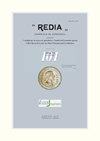EVALUATION OF CHRYSOPERLA CARNEA COMPLEX AND COCCINELLID PREDATORS AS BIOCONTROL AGENTS OF RICANIA SPECULUM (WALKER, 1851) (HEMIPTERA RICANIIDAE)
IF 0.6
4区 生物学
Q3 ZOOLOGY
引用次数: 0
Abstract
Ricania speculum is an alien insect feeding on several host plants belonging to several families, including important vegetables, crops, ornamental plants, wild plants as well as trees. For the first time, recently, Chrysoperla sp. and coccinellid beetles have been observed preying on this species in the field on Citrus sp. and Laurus nobilis plants. The main purposes of this work were to evaluate the possible predation capability of these groups of insects and determine their prey preference in laboratory trials. In the choice trials, R. speculum nymphs were paired in a confined space and exposed for 24h to single predators: Ch. carnea complex and to the coccinellids Cryptolaemus montrouzieri, Adalia bipunctata, Coccinella septempunctata, and Propylea quatuordecimpunctata. Specimens of Aphis rumicis, an aphid frequently found on her baceous plants, were used as a control prey. In the cage trials, a single Ch. carnea complex second-instar larva was placed into a jar containing a tomato plant with ten R. speculum nymphs. In the choice trials, a high mortality percentage of both preys was observed with the Ch. carnea complex, while in those with Coccinellids only high A. rumicis mortality was reported. In the cage trials, 13% mortality of R. speculm was recorded after 24h while after 72h and 168h prey mortalities reached 18% and 25%, respectively. The results of the study showed that larvae of the Ch. carnea complex could be potential predators of R. speculum, while coccinellids do not seem promising predators of this alien species.杂茧蝶和球菌类捕食者作为刺蝇生物防治剂的评价(walker, 1851)(半翅目刺蝇科)
蓖麻是一种外来昆虫,以几个科的几种寄主植物为食,包括重要的蔬菜、作物、观赏植物、野生植物和树木。最近,人们首次在柑橘属(Citrus sp.)和金龟子属(Laurus nobilis)植物上观察到金龟子和球虫甲虫捕食该物种。这项工作的主要目的是评估这些昆虫群体可能的捕食能力,并在实验室试验中确定它们的猎物偏好。在选择试验中,窥器若虫在密闭空间中配对,并暴露于单一捕食者24小时:肉苁蓉复合体和隐蝶球虫、双孔虫、七孔虫和四孔虫。rumicis蚜虫是一种经常在其杆状植物上发现的蚜虫,其标本被用作对照猎物。在笼内试验中,将一只Ch.肉毒毒素复合物二龄幼虫放入装有番茄植株的罐子中,罐子里有十只窥器若虫。在选择试验中,用肉毒毒素复合物观察到两种猎物的死亡率都很高,而在那些用球虫的猎物中,只有很高的拉米西斯球虫死亡率被报道。在笼内试验中,24小时后记录到13%的窥镜蛇死亡率,而72小时和168小时后,猎物死亡率分别达到18%和25%。研究结果表明,肉苁蓉复合体的幼虫可能是窥镜虫的潜在捕食者,而球虫似乎不太可能成为这种外来物种的捕食者。
本文章由计算机程序翻译,如有差异,请以英文原文为准。
求助全文
约1分钟内获得全文
求助全文
来源期刊

Redia-Giornale Di Zoologia
ZOOLOGY-
CiteScore
1.20
自引率
20.00%
发文量
18
审稿时长
>12 weeks
期刊介绍:
Redia supports its long history of basic and applied research in entomology and invertebrate zoology in the field of crop and forest tree protection responding at the same time to the increasing need of innovation and technological improvement.
 求助内容:
求助内容: 应助结果提醒方式:
应助结果提醒方式:


